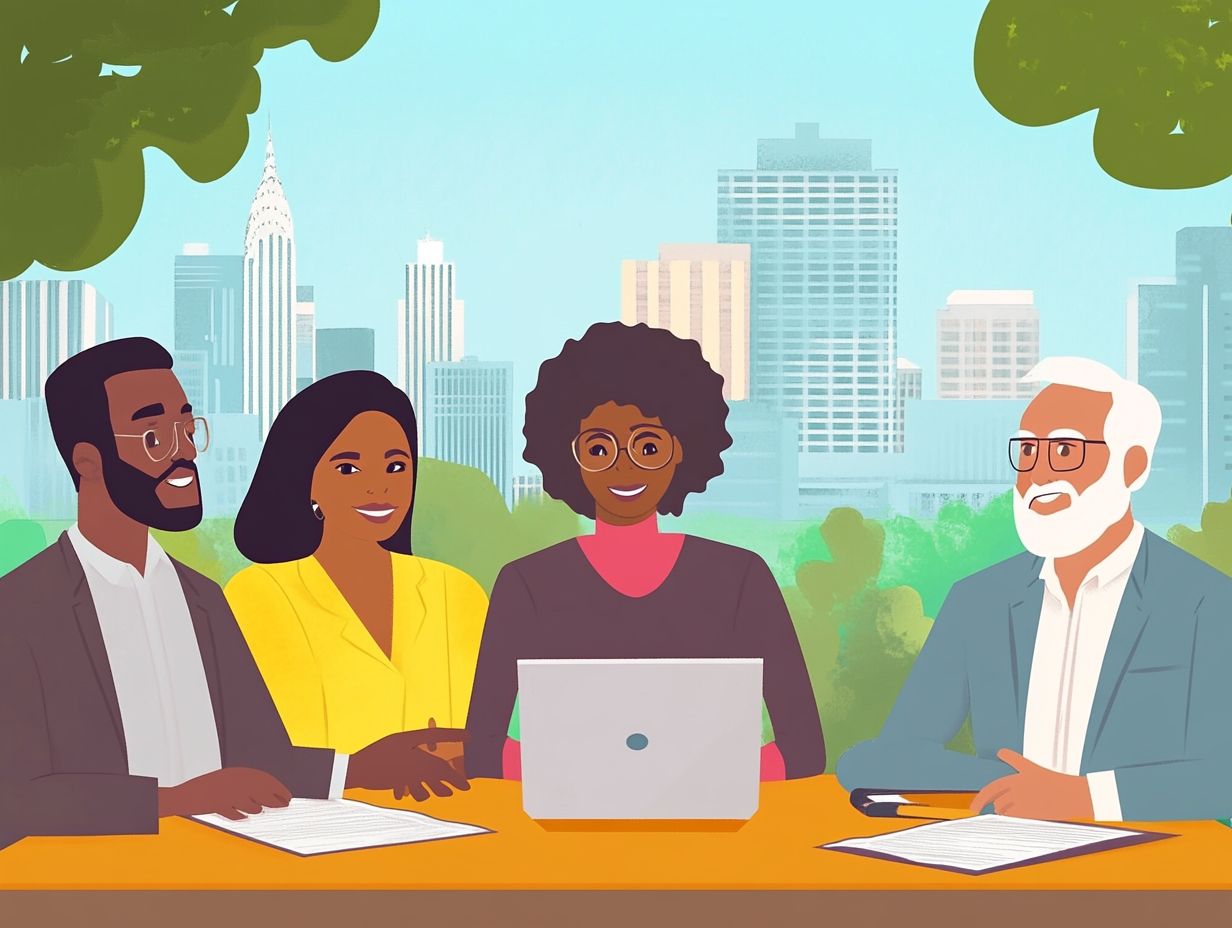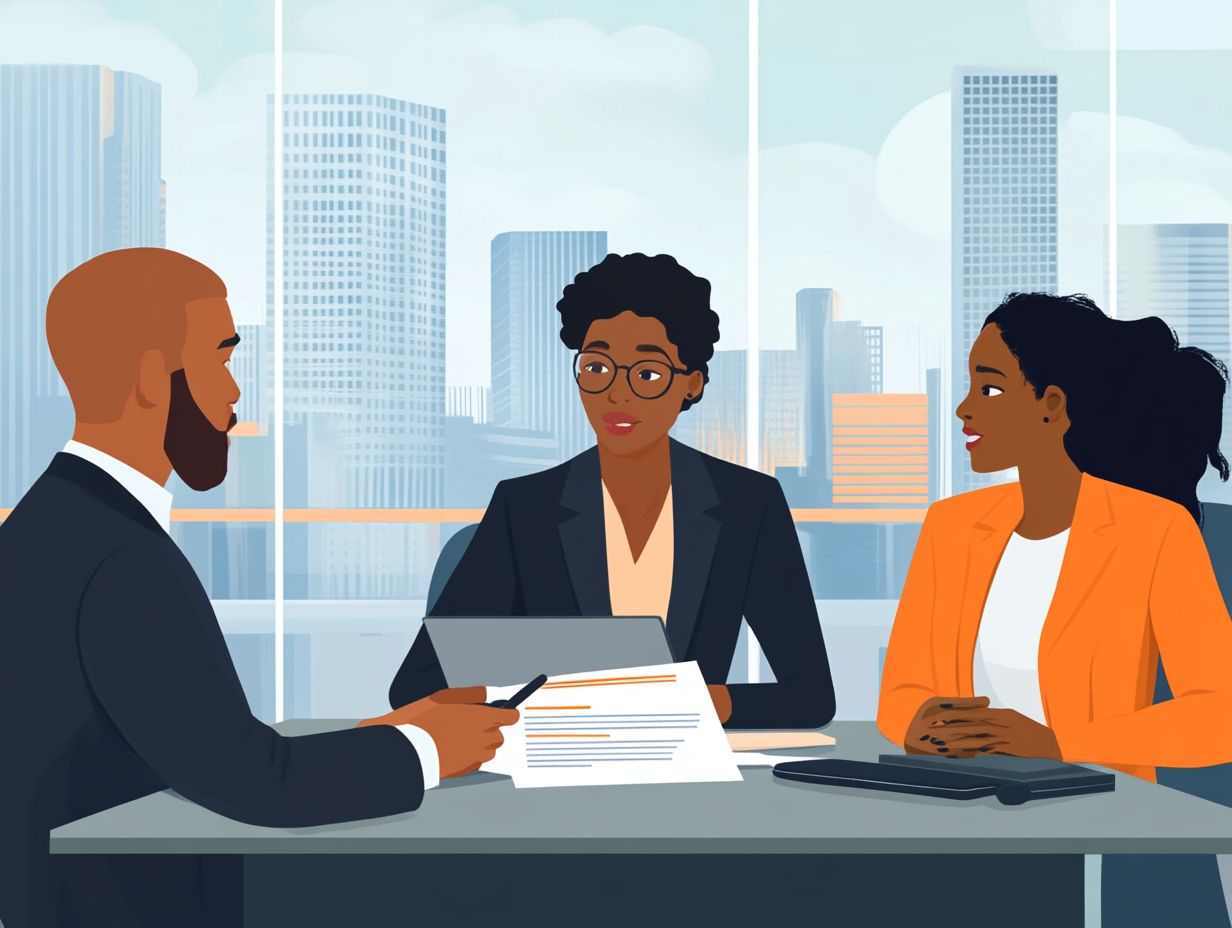What Should I Know About Local Laws?
Understanding local laws is crucial for both residents and visitors. These regulations dictate everything from property rights to public behavior, and being aware of them can spare you from unforeseen complications.
This guide delves into the definition and significance of local laws, examines the various types and their distinctions, and emphasizes the importance of staying informed.
With practical tips and resources at your disposal, you ll be equipped to navigate local laws effortlessly, maximizing your experience in any community.
Contents
Key Takeaways:

- Being aware of local laws is crucial for avoiding potential consequences and maximizing benefits in your community.
- Local laws can vary greatly, so it’s important to research and understand the specific laws in your area and how they may differ from other places.
- Staying informed about local laws can be done through reliable sources and resources, such as government websites and community organizations.
Understanding Local Laws
Understanding local laws is vital for fostering safety in the community and safeguarding civil rights. These laws dictate the behavior of community members and the operations of local government.
They also play a crucial role in promoting public health and well-being by establishing guidelines that influence everything from housing policies to transportation decisions.
Overlooking these laws can lead to unintended consequences, such as criminalization and unfair law enforcement, which disproportionately affect marginalized communities. Local laws are not just regulatory measures; they are the bedrock of accountability, ensuring that community resources are managed effectively and equitably.
Types of Local Laws
Local laws can be categorized into various types, each serving a specific purpose to foster a safer and more equitable community. You ll encounter laws against disturbances designed to tackle disruptions, jaywalking laws that guide pedestrian behavior, and tobacco regulations aimed at mitigating public health risks.
These regulations uphold safety standards, ensure compliance with occupancy policies in housing, and establish parking requirements that promote transportation equity. Local government takes on a vital role in enacting and enforcing these laws, ultimately influencing the daily lives of community members like you.
Examples and Differences
Examples of local laws include laws against disturbances that address issues in neighborhoods, jaywalking laws that regulate pedestrian crossings, and tobacco laws designed to protect public health by limiting smoking in public areas.
Each of these laws serves distinct purposes that significantly impact community safety and public health. For instance, laws against disturbances help maintain tranquility in residential areas, reducing conflicts between neighbors and fostering a more harmonious living environment.
Jaywalking laws play a vital role in preventing accidents, guiding pedestrians to use designated crosswalks, which enhances safety for both drivers and walkers.
Tobacco laws aim to shield non-smokers from secondhand smoke and contribute to broader public health initiatives by discouraging young people from picking up smoking. The implications of these regulations are profound, as they directly shape how community members interact with their environment and one another, cultivating a healthier and safer community overall.
Why It’s Important to Know Local Laws

Understanding local laws is essential for you as a community member, helping you steer clear of unintended consequences that could stem from ignorance think fines for minor infractions or even discrimination in enforcement practices.
Being aware of the laws related to community safety enables you to advocate for policy solutions that foster social equity and accountability within the justice system.
By grasping these regulations, you can also lessen the impact of poverty penalties that often disproportionately affect marginalized groups.
Benefits and Consequences
Understanding local laws is crucial. It enhances community safety and accountability.
Ignorance can lead to fines and legal troubles. It may also result in unfair treatment by law enforcement.
When you understand local regulations, you enable yourself to advocate for your rights and engage actively in civic discussions. This knowledge acts as a protective shield against potential abuses of power, whether from enforcement practices or societal inequities.
By being informed, you can help foster a more equitable environment, ensuring that everyone has access to the same protections and opportunities. Without this awareness, you might unwittingly become a victim of systemic issues that perpetuate injustice and undermine community health.
Ultimately, the balance between awareness and ignorance plays a crucial role in shaping the overall well-being of your community.
How to Stay Informed about Local Laws
Stay informed about local laws by getting involved in your community. Engage with vital resources like local government websites, participate in civic engagement initiatives, and keep an eye on updates from the legislative body that governs your area.
These resources enable you to grasp enforcement practices, ensuring public accountability and timely awareness of any changes in the laws that affect your rights and responsibilities.
Connect with local organizations, such as the American Civil Liberties Union or Food and Water Watch, to boost your knowledge of laws that influence health equity and civil rights.
Navigating local laws as a visitor or resident can be daunting. Grasping essential regulations about occupancy standards, transportation decisions, and housing policies can greatly enhance community safety and well-being.
As a visitor, it s wise to familiarize yourself with local ordinances to steer clear of fines and ensure compliance. For residents, understanding your rights under public health regulations is equally beneficial.
This awareness fosters a sense of responsibility among community members and contributes to nurturing a safe and inclusive environment for all.
Tips and Guidelines

When navigating local laws, tap into community resources and immerse yourself in civic activities that enhance your understanding of safety standards and regulations.
This approach guarantees compliance and nurtures a sense of belonging and accountability among both residents and visitors.
Local libraries frequently offer workshops and information sessions on pertinent laws, while community centers might host forums for you to voice your concerns and ask questions. Attending city council meetings is an excellent way for you to stay informed about changes in legislation or upcoming regulations that could directly impact you.
Engaging with neighborhood associations can also provide valuable insights into specific rules and guidelines, fostering a more informed and responsible community.
By staying informed, you play a vital role in your community.
The Role of Local Government in Enforcing Laws
Local government holds a pivotal position in upholding laws that safeguard civil rights and advance public health. By ensuring that community members comply with regulations, they actively foster an environment of safety and equity for all.
Challenges in Law Enforcement
Challenges in law enforcement, such as unfair treatment based on race or background and discrimination, can significantly undermine public accountability and the effectiveness of regulations intended to enhance community safety.
These issues erode the trust between law enforcement agencies and the communities they serve, perpetuating a cycle of fear and resentment. When certain groups feel targeted or unfairly treated, it creates an environment where cooperation diminishes, making it difficult for officers to enforce the law effectively.
Public perception of bias hinders community assistance in investigations, limiting the resources available to local authorities. Tackling these challenges builds trust and enhances public safety.
Frequently Asked Questions
What Should I Know About Local Laws?

Local laws refer to laws and regulations that are specific to a particular city, county, or state. It is important to familiarize yourself with these laws to avoid any legal issues.
What types of laws fall under local laws?
Local laws can cover a wide range of topics, such as traffic and parking regulations, housing codes, noise ordinances, business permits, and more.
Is it important to know local laws even if I am just visiting?
Yes, it is important to know local laws even if you are just visiting because ignorance of the law is not a valid defense in court. You are expected to follow all laws and regulations while in a particular location.
Where can I find information about local laws?
You can find information about local laws by checking the official website of the city, county, or state you are in. You can also visit the local government offices or consult with a lawyer for more specific inquiries.
What are the consequences of violating local laws?
The consequences of violating local laws vary depending on the severity of the offense. It can range from fines, community service, or even jail time. It is best to follow all local laws to avoid any legal repercussions.
Are there any exceptions to local laws?
In some cases, there may be exceptions or exemptions to certain local laws. For example, if you have a disability, you may be exempt from certain parking regulations. It is important to inquire and provide proper documentation to avail of any exemptions.
Stay informed and protect yourself by learning about local laws today!





